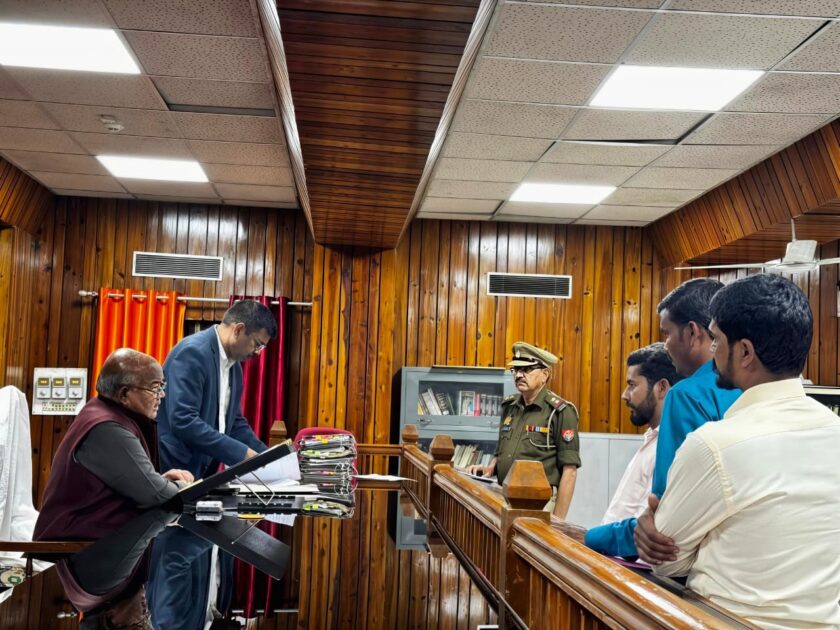New Delhi: Riding high on the success of Operation Sindoor, Prime Minister Narendra Modi addressed the nation, delivering a resolute message on India’s audacious military response to the April 22 Pahalgam terror attack that claimed 26 lives. This operation, which targeted nine terror hubs in Pakistan and Pakistan-occupied Kashmir, was not merely a tactical strike but a profound statement of India’s transformed national security doctrine. Modi’s address articulated a broader message to the nation—one of unwavering resolve, strategic restraint, and a redefined “new normal” in India’s fight against terrorism, resonating deeply with the collective psyche of a nation seeking justice and security.
The Pahalgam attack was a brutal assault on India’s unity, with terrorists targeting Hindu men in front of their families, leaving behind a trail of grief symbolized by the erasure of sindoor—the vermillion mark of married Hindu women. Modi’s choice to name the retaliatory operation Sindoor was a masterstroke of emotional and cultural messaging. It transformed a military action into a pledge to restore honor and deliver justice, particularly for the women widowed in the attack. By invoking sindoor, Modi connected with millions of Indians, framing the operation as a defense of familial and cultural values. This was not just about neutralizing terrorists; it was about standing up for the dignity of India’s daughters and sisters, a sentiment Modi emphasized when he dedicated the armed forces’ valor to them.
Modi’s broader message was one of doctrinal shift. Operation Sindoor marked a departure from reactive counter-terrorism to a proactive, decisive policy. He declared it India’s “new normal,” signaling that any terrorist act would be met with swift, targeted retaliation on India’s terms.
This shift was underscored by the operation’s precision—within 25 minutes, Indian forces destroyed key terror bases in Bahawalpur and Muridke, killing over 100 terrorists, including aides of Jaish-e-Mohammed chief Masood Azhar. Modi’s assertion that India would strike at the “roots of terror” dismantled the notion that terrorist organizations and their state sponsors could operate with impunity. His warning against Pakistan’s “nuclear blackmail” further cemented India’s refusal to be intimidated, projecting a nation confident in its military and diplomatic strength.
The Prime Minister’s address also carried a message of national unity. In the face of Pakistan’s subsequent attacks on Indian civilian and military sites, Modi called for a united front, a sentiment echoed in his all-party meeting where he urged opposition leaders to stand together. This unity was not just political but societal, as he emphasized that Operation Sindoor reflected the “feelings of millions.”
By involving women officers like Wing Commander Vyomika Bakshi and Colonel Sofiya Qureshi in briefing the nation, Modi showcased India’s diversity and strength, countering divisive narratives and reinforcing that the fight against terror transcends religion and region.

Globally, Modi positioned Operation Sindoor as a contribution to the war on terror, noting that targets like Bahawalpur and Muridke were “universities of global terrorism” linked to attacks like 9/11 and the London Tube bombings.
This framing aligned India’s actions with international interests, while his strategic restraint—avoiding escalation into full-scale war—addressed global concerns about nuclear conflict. The ceasefire, secured after Pakistan’s desperate outreach, highlighted India’s ability to dictate terms while maintaining diplomatic leverage.
Modi’s message extended to long-term national strategy. By suspending the Indus Waters Treaty, he signaled that India would use all tools—military, diplomatic, and economic—to pressure Pakistan into dismantling its terror infrastructure. His emphasis on “nation first” and comprehensive national power underscored a vision of a self-reliant, resilient India, prepared to counter external threats while fostering internal growth.
Ultimately, Operation Sindoor and Modi’s address conveyed a transformative vision: an India that is assertive yet restrained, united yet diverse, and resolute in its pursuit of justice. It was a clarion call to the nation to embrace strength, unity, and a relentless commitment to eradicating terrorism, ensuring that the pain of Pahalgam would never be forgotten—or unanswered.









